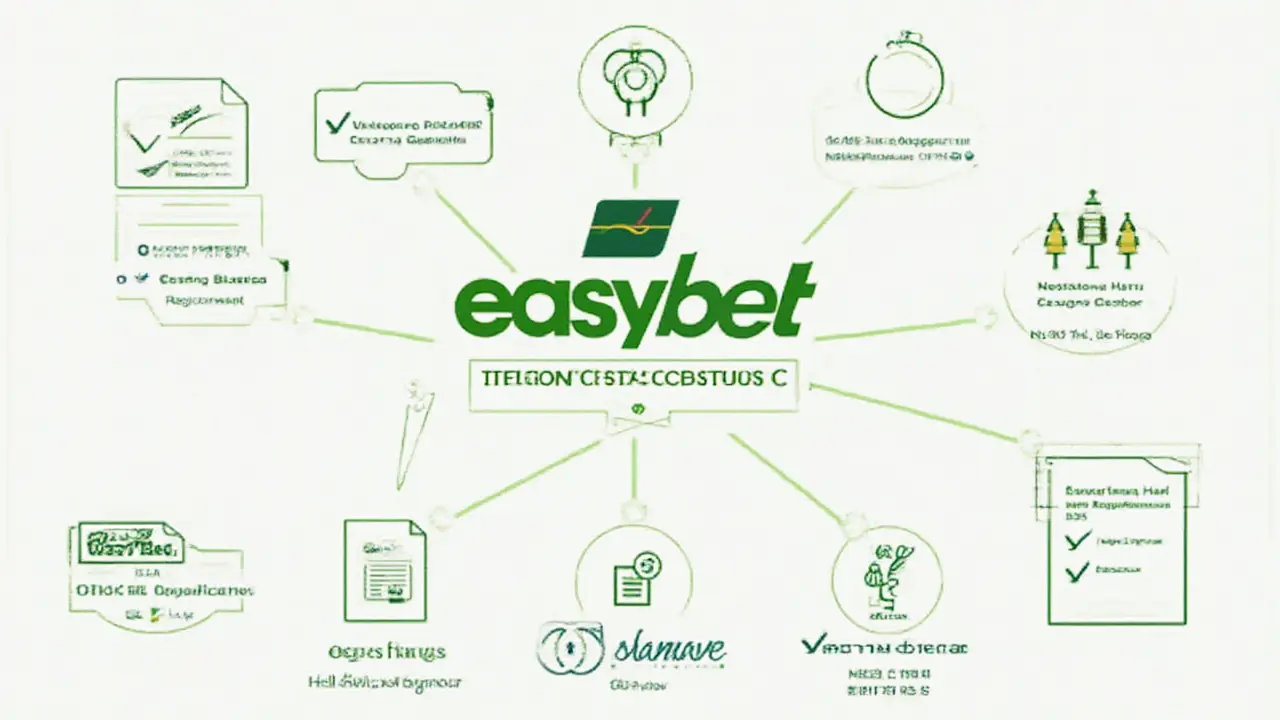If you’re curious about where your betting money actually lands, you’re not alone. Easybet has become a go-to name for quick, flashy sports bets and casino action in several countries. But behind every slick website and catchy jingle, there’s a real company structure, some paperwork you can barely read, and a story most punters never hear. Trust matters in betting, but the people behind Easybet haven’t exactly plastered their ownership history on the homepage. That makes it even more fascinating to dig into who’s really running the show, who’s holding the license, and who’s cashing in.
Who Is Behind Easybet? Names, Faces, and the Corporate Ladder
The world of online betting is full of thick smoke screens, with brands often being fronts for bigger fish. Easybet is no exception. On paper, the company running Easybet is EasyBet Ltd., registered in Malta since 2015. Malta’s one of those tiny islands with strict gaming regulators and surprisingly friendly tax laws for betting companies. The company’s official documents list Anton Keswick as the founder and CEO, a guy who cut his teeth building software for sportsbooks across Europe in the early 2000s. But if you Google Anton’s name, don’t expect flashy magazine interviews; the man keeps a low profile, probably for good reason.
While Anton Keswick is the public-facing leader, the reality is that Easybet has changed hands more than a Premier League striker in a transfer season. In late 2019, EasyBet Ltd. received significant investment from ValorBet Group, a London-based holding company specializing in gaming assets. This group is where things get complicated. ValorBet Group itself is privately held, with ties to the Davids family, who have financial fingers in everything from esports teams in Berlin to slot machine tech in Las Vegas. Through these layers, Easybet’s ultimate ownership isn’t a simple matter of pointing at a single billionaire boss.
The current executive roster still lists Anton as CEO. There’s also Marta Iosava as CFO—a numbers whiz who previously worked with NetEnt—and William Fraser as legal counsel, a former solicitor for a big UK bookmaker. But the names you won’t see? Major investors from ValorBet, along with a few shadowy venture funds based in Luxembourg. That’s how the online betting industry likes it: corporate faces up front, real owners backstage.
| Entity | Role | Registered Country | Public Info |
|---|---|---|---|
| EasyBet Ltd. | Operating Company | Malta | Anton Keswick, CEO |
| ValorBet Group | Parent Company | UK | Davids Family, Investors |
| Venture Funds (unnamed) | Silent Partners | Luxembourg | Confidential |
So if you’re placing a bet, your money is floating through a maze of companies, some transparent, some not. The entire structure lets Easybet tap the expertise and deep pockets of its partners, while keeping local operations nimble. That’s how they can launch new features fast or pivot markets—without ever listing "John Smith" as the sole boss.

The Role of Strategic Partnerships, Tech Providers, and Licensing
Easybet doesn’t do it all alone. Even the best online bookmakers need strong tech and trustworthy partners if they don’t want the wheels to come off. For example, the games you see in the casino section? Most of them come from Play’n GO and Evolution, two giants in the business. They license out the hottest slots and live dealer platforms, meaning Easybet doesn’t actually build the games—they just host them.
Payment processing is another layer of partnership you might not think about until your withdrawal gets stuck for "verification checks." Easybet uses providers like Trustly, PaySafe, and even crypto gateways for some regions. Each of these partners brings its own compliance checks and customer support quirks, adding more complexity to how Easybet functions.
And what about the legal stuff? Here’s where it gets tricky. Easybet holds a gaming license from the Malta Gaming Authority, which covers nearly all of its European markets. In places like the UK and Sweden, they work with local regulators or even through white-label partners so they don’t break any rules. This means the site you see in one country might technically be operated by a different "Easybet" than in another, all part of the same family but with separate registrations.
The use of these layers and partnerships does two things. First, it gives punters confidence that games are fair, deposits are secure, and someone’s watching over the process (at least in theory). Second, it gives Easybet plausible deniability if things go wrong; blame the software partner, blame the payment provider, blame the licensing authority. If you’re a sharp bettor, always scroll down and click “About Us” or "Regulations"—you’ll spot these partners listed in the fine print.
“Regulatory compliance is a must, but it’s also a chess game. Operators want flexibility, so they structure their companies across friendly jurisdictions. Malta, UK, Gibraltar, you name it. It’s a balancing act between trust and speed.” — Peter Williams, Gambling Compliance Report, 2024.
One cool tip: if you want to check a site’s real owner, look up the license number on the regulator’s website, not just the brand. For instance, Easybet’s MGA/B2C/298/2015 license tells you who’s ultimately responsible if anything goes sideways.

Facts, Figures, and Why Ownership Really Matters to Bettors
If your bet wins, does it matter if Anton Keswick or a faceless fund in Luxembourg owns Easybet? For the average punter, the answer is “maybe.” Ownership matters a lot more than you think, especially if who runs the show impacts customer support, payout speed, or the integrity of the odds. A look at Easybet’s recent annual report shows revenue north of €260 million in 2024, making it one of the fastest-growing brands in mid-tier European sports betting. That kind of scale doesn’t come just from flashy ads—but from backing by serious investors who want to keep customers loyal.
who owns Easybet is also a red flag for those with a sharp eye for risk. In 2022, after a data breach impacted accounts in Germany, Easybet’s parent company rapidly sorted compensation and legal notices, thanks to deep reserves from ValorBet’s coffers. Smaller, family-run bookmakers might have gone bust, leaving customers in the lurch. Big, well-backed ownership means better odds someone will answer your support ticket—or at least have the funds for payouts—when trouble strikes.
But there’s a flip side. Large holding companies are notorious for prioritizing profit over player experience. Watchdogs like eCOGRA highlight how big brands can sometimes nudge odds or run promotions that look great upfront but have sneaky terms in the fine print. Since these operators answer to investors, they sometimes focus more on the financials than punter satisfaction.
So what should you watch for as a bettor? Here are some tips:
- Always read the Terms & Conditions—who is the "operating company" at the top?
- Check the licensing authority number and verify it with the official regulator’s website.
- Search for owner names in reputable trade news sources, not just on Easybet’s help pages.
- Dig into investor reports—public companies must reveal significant stakes, while private ones aren’t required, but annual highlights can slip through.
- If support is slow, research who’s responsible—big operators usually have more robust help teams, but also more layers of bureaucracy.
Fans of transparency often wish for more plain-English data about who owns their betting sites. Until regulators force companies like Easybet to post owner info in giant lettering, the only way to know for sure is to do your own digging. The upside to ownership transparency? It gives peace of mind. The downside? You start seeing just how intertwined and complicated the global betting market really is. But hey, that’s part of the thrill.
Write a comment